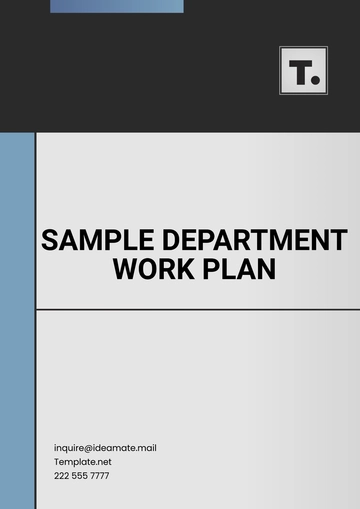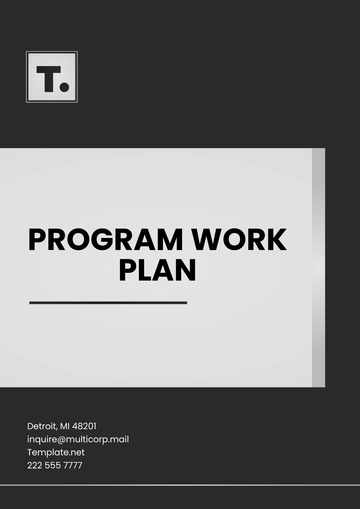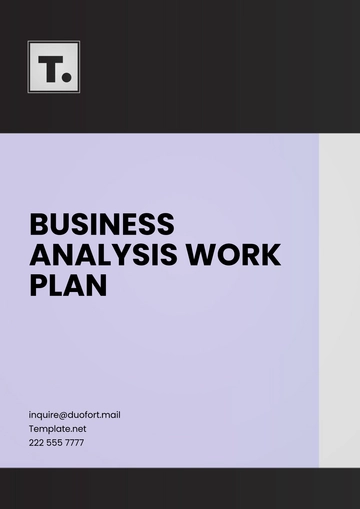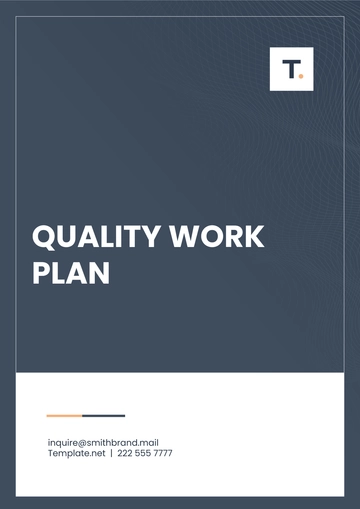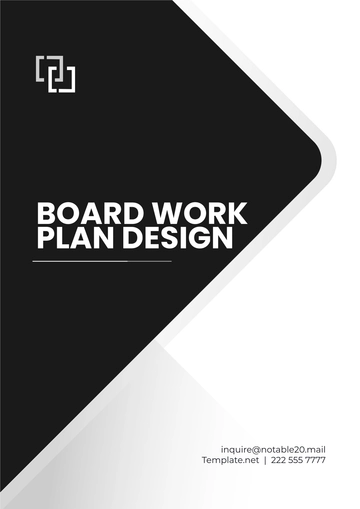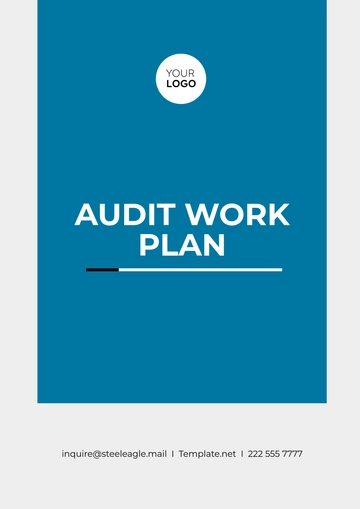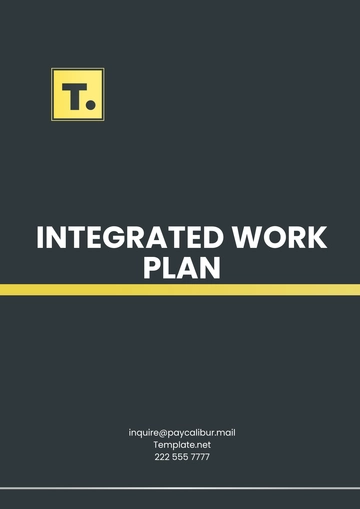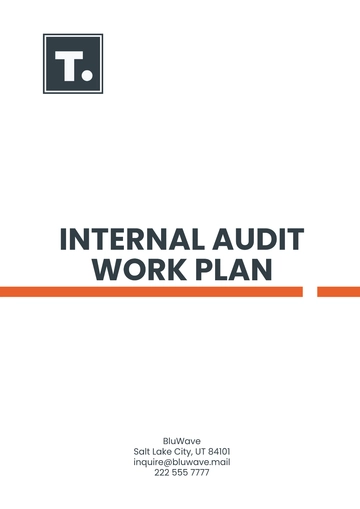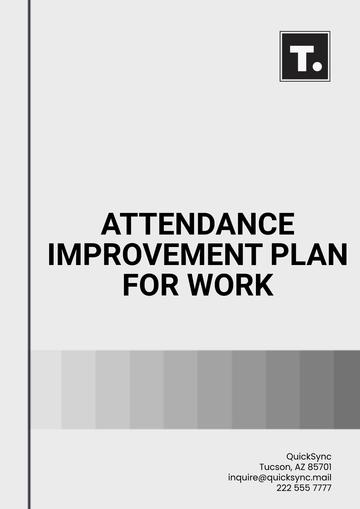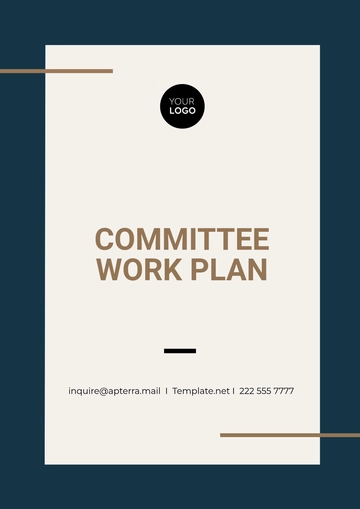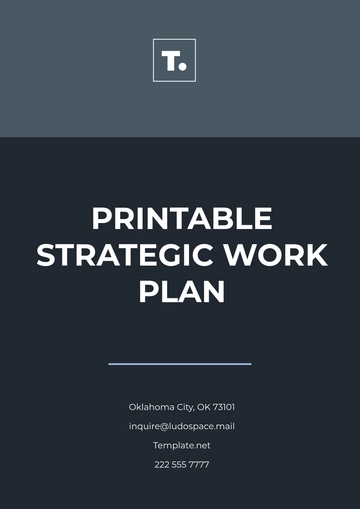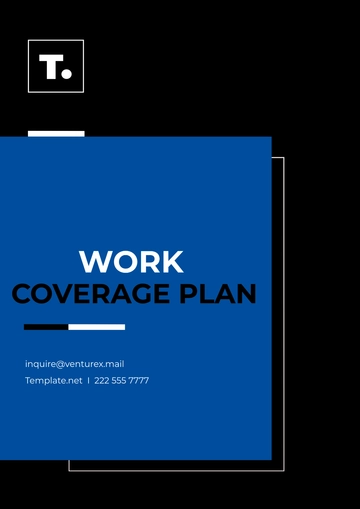Free Board Work Plan Design
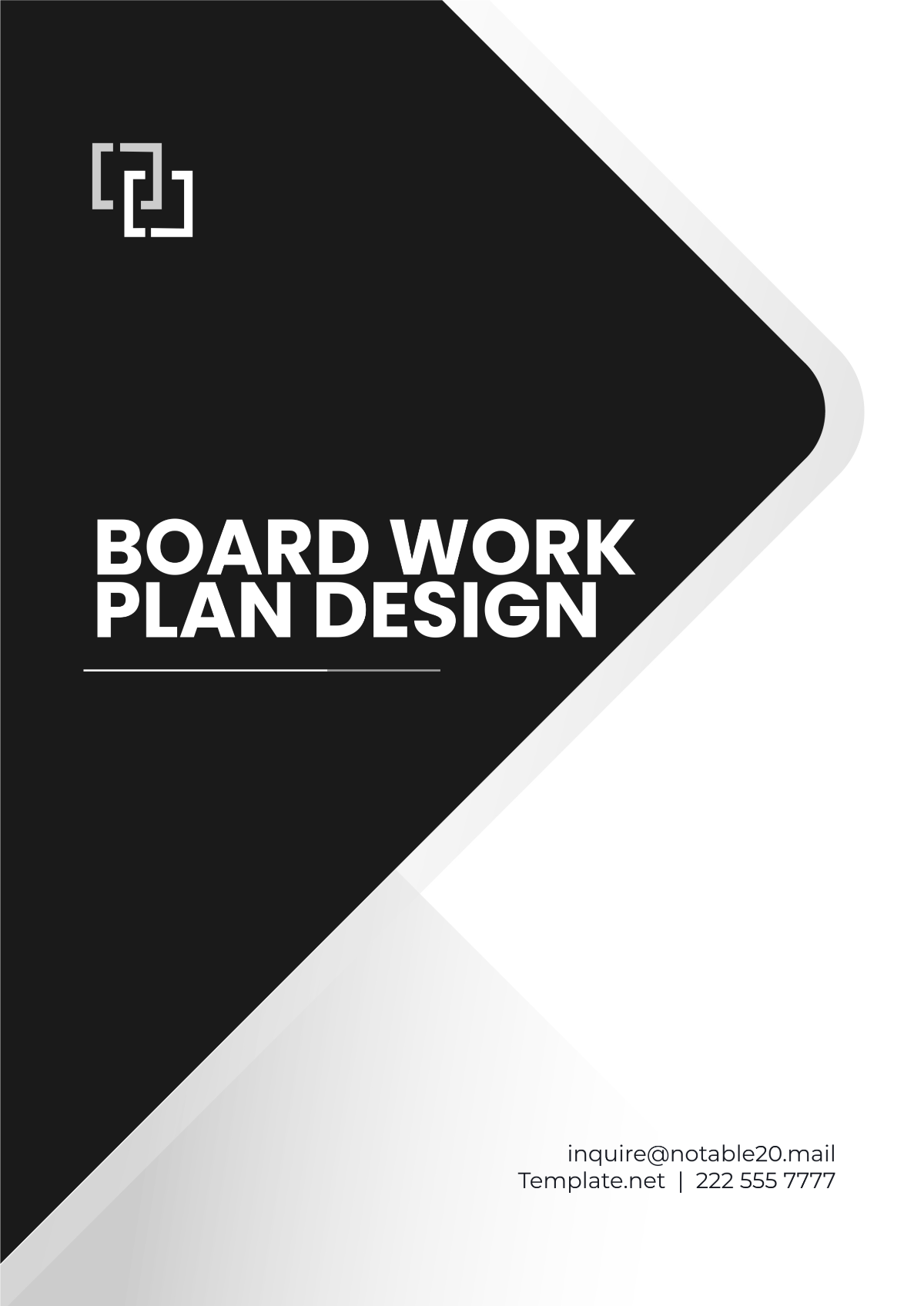
Prepared by: | [YOUR NAME] |
Company: | [YOUR COMPANY NAME] |
Department: | [YOUR DEPARTMENT] |
Date: | [DATE] |
I. Introduction
The purpose of this Board Work Plan Design is to outline the key activities, responsibilities, and timelines for the board of directors of [YOUR COMPANY NAME]. This work plan ensures alignment with the organization’s strategic objectives, compliance with governance standards, and effective oversight of organizational operations. The plan covers the period from January 1, 2050, to December 31, 2050.
II. Board Responsibilities
The board of directors holds a fiduciary responsibility to govern and provide strategic direction for the organization. Key tasks include:
A. Strategic Oversight
Reviewing and approving the organization’s long-term strategies and goals.
Monitoring the performance of management in executing the strategic plan.
B. Financial Stewardship
Reviewing and approving annual budgets and financial statements.
Overseeing the financial health and sustainability of the organization.
C. Governance and Compliance
Ensuring adherence to legal and regulatory requirements.
Reviewing and updating the organization’s governance policies and practices.
D. Risk Management
Identifying, assessing, and overseeing the management of key risks.
III. Meeting Schedule
The board will meet regularly to review organizational performance, make decisions, and discuss strategic initiatives. The following meeting schedule is proposed:
A. Quarterly Meetings
Meeting Date | Topics |
|---|---|
March 15, 2050 | Financial performance review, strategic initiatives |
June 15, 2050 | Risk management updates, annual budget review |
September 15, 2050 | Organizational performance, compliance review |
December 15, 2050 | Year-end review, board evaluations |
B. Special Meetings
Special Meeting | Date | Topic |
|---|---|---|
Special Meeting 1 | February 1, 2050 | Emergency decisions or critical strategic changes |
Special Meeting 2 | November 1, 2050 | Annual general meeting preparation |
IV. Committee Assignments
The board’s committees play a crucial role in carrying out specific tasks. The following committee assignments are included:
A. Audit Committee
Oversee financial reporting, audits, and internal controls.
Ensure compliance with financial regulations and policies.
B. Governance Committee
Review board performance and recommend changes to governance structures.
Assist in the selection of new board members.
C. Risk Committee
Assess and mitigate risks affecting the organization’s operations.
Monitor organizational risk management strategies.
V. Key Performance Indicators (KPIs)
The following KPIs will be used to assess the board’s performance over the year:
A. Financial Health
Budget adherence and financial performance against forecasts.
Return on investment (ROI) for major projects and investments.
B. Strategic Alignment
Progress on achieving the strategic goals set at the beginning of the year.
Board members’ engagement in strategic discussions and decision-making.
C. Governance Effectiveness
Timeliness of board meetings and decision-making processes.
Annual board evaluations and feedback from members.
VI. Legal and Compliance Obligations
The board is responsible for ensuring the organization complies with all applicable laws, regulations, and industry standards. Key compliance tasks include:
A. Regulatory Compliance
Adhering to local, state, and federal regulations.
Ensuring transparency and accountability in all organizational operations.
B. Legal Reviews
Reviewing contracts, agreements, and legal risks.
Ensuring proper documentation and reporting for regulatory bodies.
- 100% Customizable, free editor
- Access 1 Million+ Templates, photo’s & graphics
- Download or share as a template
- Click and replace photos, graphics, text, backgrounds
- Resize, crop, AI write & more
- Access advanced editor
The Board Work Plan Design Template from Template.net offers a comprehensive way to plan and organize your board activities. Fully editable and customizable, it helps you outline key objectives, meetings, and actions. This template is ideal for boards looking to stay focused and efficient. Use our AI Editor Tool to personalize each section, ensuring that it fits your organizational needs while keeping the planning process smooth and effective.
You may also like
- Finance Plan
- Construction Plan
- Sales Plan
- Development Plan
- Career Plan
- Budget Plan
- HR Plan
- Education Plan
- Transition Plan
- Work Plan
- Training Plan
- Communication Plan
- Operation Plan
- Health And Safety Plan
- Strategy Plan
- Professional Development Plan
- Advertising Plan
- Risk Management Plan
- Restaurant Plan
- School Plan
- Nursing Home Patient Care Plan
- Nursing Care Plan
- Plan Event
- Startup Plan
- Social Media Plan
- Staffing Plan
- Annual Plan
- Content Plan
- Payment Plan
- Implementation Plan
- Hotel Plan
- Workout Plan
- Accounting Plan
- Campaign Plan
- Essay Plan
- 30 60 90 Day Plan
- Research Plan
- Recruitment Plan
- 90 Day Plan
- Quarterly Plan
- Emergency Plan
- 5 Year Plan
- Gym Plan
- Personal Plan
- IT and Software Plan
- Treatment Plan
- Real Estate Plan
- Law Firm Plan
- Healthcare Plan
- Improvement Plan
- Media Plan
- 5 Year Business Plan
- Learning Plan
- Marketing Campaign Plan
- Travel Agency Plan
- Cleaning Services Plan
- Interior Design Plan
- Performance Plan
- PR Plan
- Birth Plan
- Life Plan
- SEO Plan
- Disaster Recovery Plan
- Continuity Plan
- Launch Plan
- Legal Plan
- Behavior Plan
- Performance Improvement Plan
- Salon Plan
- Security Plan
- Security Management Plan
- Employee Development Plan
- Quality Plan
- Service Improvement Plan
- Growth Plan
- Incident Response Plan
- Basketball Plan
- Emergency Action Plan
- Product Launch Plan
- Spa Plan
- Employee Training Plan
- Data Analysis Plan
- Employee Action Plan
- Territory Plan
- Audit Plan
- Classroom Plan
- Activity Plan
- Parenting Plan
- Care Plan
- Project Execution Plan
- Exercise Plan
- Internship Plan
- Software Development Plan
- Continuous Improvement Plan
- Leave Plan
- 90 Day Sales Plan
- Advertising Agency Plan
- Employee Transition Plan
- Smart Action Plan
- Workplace Safety Plan
- Behavior Change Plan
- Contingency Plan
- Continuity of Operations Plan
- Health Plan
- Quality Control Plan
- Self Plan
- Sports Development Plan
- Change Management Plan
- Ecommerce Plan
- Personal Financial Plan
- Process Improvement Plan
- 30-60-90 Day Sales Plan
- Crisis Management Plan
- Engagement Plan
- Execution Plan
- Pandemic Plan
- Quality Assurance Plan
- Service Continuity Plan
- Agile Project Plan
- Fundraising Plan
- Job Transition Plan
- Asset Maintenance Plan
- Maintenance Plan
- Software Test Plan
- Staff Training and Development Plan
- 3 Year Plan
- Brand Activation Plan
- Release Plan
- Resource Plan
- Risk Mitigation Plan
- Teacher Plan
- 30 60 90 Day Plan for New Manager
- Food Safety Plan
- Food Truck Plan
- Hiring Plan
- Quality Management Plan
- Wellness Plan
- Behavior Intervention Plan
- Bonus Plan
- Investment Plan
- Maternity Leave Plan
- Pandemic Response Plan
- Succession Planning
- Coaching Plan
- Configuration Management Plan
- Remote Work Plan
- Self Care Plan
- Teaching Plan
- 100-Day Plan
- HACCP Plan
- Student Plan
- Sustainability Plan
- 30 60 90 Day Plan for Interview
- Access Plan
- Site Specific Safety Plan



